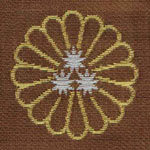Buddhist thought eschews duality. A perfect example of a dichotomous situation, a duality if you will, is the current debt ceiling crisis in Washington. Not all political issues are amenable to a Buddhist lens. This political issue is an example of where our faith tradition might advise us on a course of action.
Please note – this is not a political blog with a partisan message. Religion and politics mix at the detriment to both. That is not to say that on a particular issue we cannot use our faith tradition to better understand the situation. The debt ceiling/US deficit crisis, is so partisan in nature on several levels that politics is clearly in the way of what's best for the country, and in a global economy, the world. One of several aspirations of living the Buddhist path is to see the nature of reality. And it would seem that an objective reality does not influence the various players in this partisan political debate.
The cognitive Linguist George Lakoff wrote in his informative Moral Politics: How Liberals and Conservatives Think1, that conservatives and liberals hold two different worldviews. The liberals are noted as having a ‘Nurturant Parent morality’ in which the liberal perceives people as something to be cared for and assisted. Conservatives conversely perceive that people are made good through self-discipline and hard work, he calls this ‘Strict Father morality’. Hmm, another dualism, but instructive none-the-less.
Extreme partisan politics is not new to the American government. As the pundits in print and digital media have informed us this is just another example of deeply entrenched ideologies driving what should be a discussion, but is more of a ‘kabuki politics’. Barbara Thornbury writes“. . . kabuki in Edo [Tokyo] was defined by extravagance and bombast, as exemplified by stark makeup patterns, flashy costumes, fancy keren (stage tricks), and bold mie (poses)”2. This seems to fit the Washington stage as well as Edo. It would be entertaining if the outcomes were not so potentially hazardous.
From a Buddhist perspective I would tweak George Lakoff’s model. I propose that the conservative strict father is analogous to possessing wisdom and liberal Nurturant Parent is analogous to possessing compassion.3 Each of these two groups extol their own virtue at the expense of the other. We know from Buddhist teachings that compassion should not be exercised without wisdom nor wisdom without compassion. Both wisdom and compassion are required in all our dealings as human beings for all other sentient beings. As we view this ongoing drama consider how much more constructive the situation would be if both sides had a lesson in basic Buddhism.
What can we as individuals do about this situation – not contribute to the discord. In daily discussions be measured in your responses. If you feel so moved write your representative requesting both compassion and wisdom in formulating a sane and reasonable course of action.
In the next blog I’ll provide an update on the Japan tragedy.
Gassho . . . Monshin
1Ȁ University of Chicago Press, 2002
2Ȁ Thornbury, Barbara E. "Sukeroku's Double Identity: The Dramatic Structure of Edo Kabuki". Japanese Studies 6 (1982). Ann Arbor: Center for Japanese Studies, University of Michigan. 13
3Ȁ An interesting side note – Ruth Benedict, the American Anthrologist author of The Chrysanthemum and the Sword, perceived Japanese and U.S. culture in a similar fashion, with America being the strict father and Japan the understanding mother.

